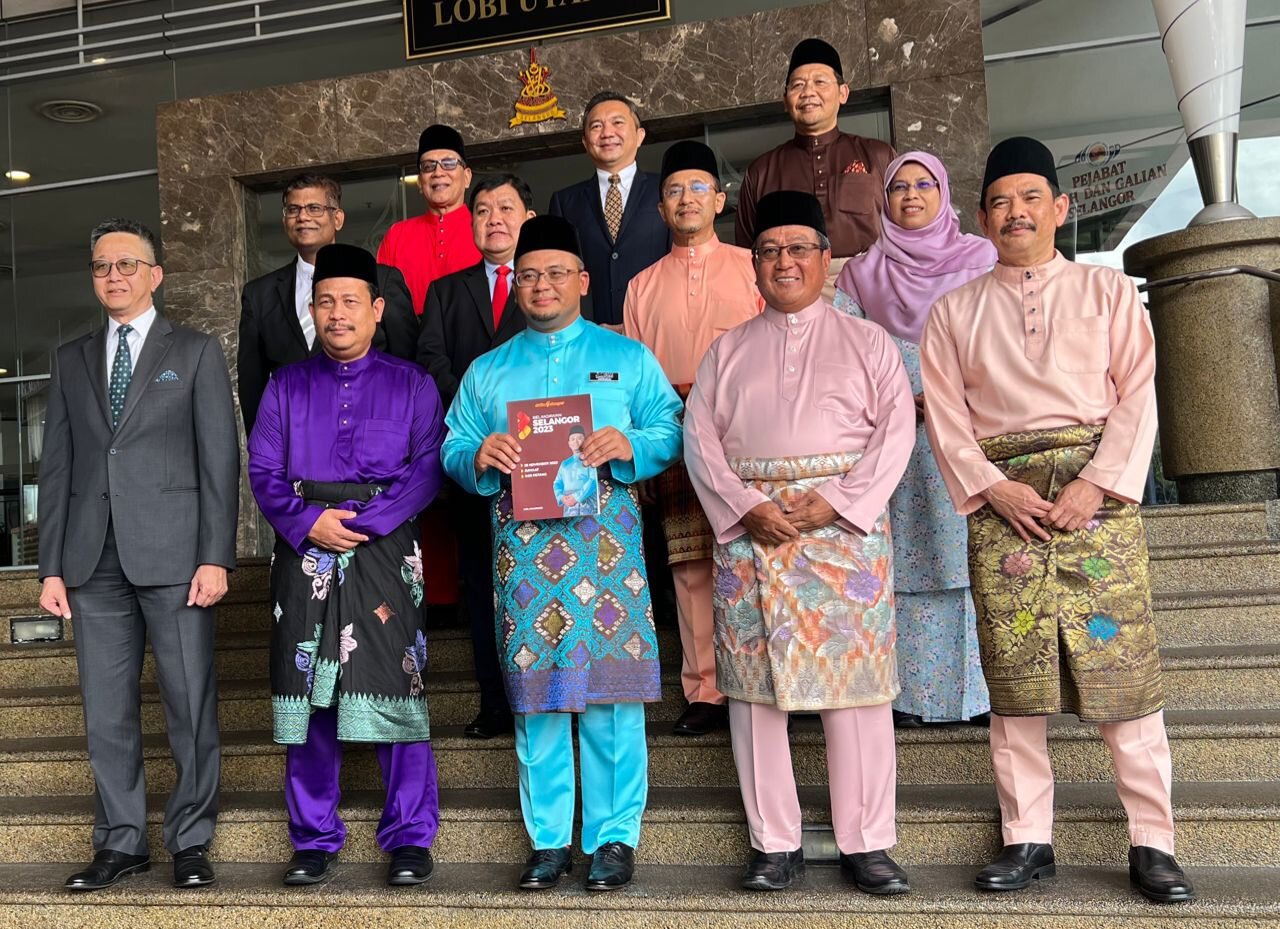KUALA LUMPUR, Nov 25 – The Selangor state government today announced an allocation of RM65.6 million for public health next year, or about 2.7 per cent of the state’s overall RM2.45 billion 2023 budget.
In proportion to the state’s 2023 development expenditure of RM1.2 billion, the percentage earmarked for health is slightly lower compared to last year’s 5.8 per cent at 5.46 per cent.
The state’s health spending in proportion to its development expenses has seen steady increases in the last few years, rising from 4.7 per cent in 2020 to 5.8 per cent in 2022.
Selangor Menteri Besar Amirudin Shari, when tabling the state’s 2023 budget at the state legislative assembly, said the state health budget includes a RM45 million allocation for the continuation of the Iltizam Selangor Sihat health insurance programme (ISS) that benefits an estimated 100,000 primary policy holders and their family members.
Policy holders under the family category are entitled to basic treatment and vaccination at panel clinics in Selangor worth RM500 per year, while individual policy holders are entitled to similar benefits worth RM250 per year.
Primary ISS policy holders will also receive takaful protection that includes death and disabilities due to accidents of up to RM5,000, critical illness benefits of up to RM5,000, natural death (RM5,000) and death assistance fund (khairat kematian) of RM1,000.
Family members of primary policy holders will also be entitled to death and disabilities benefits due to accidents of up to RM2,000, critical illness benefits (RM2,000), and death assistance fund of RM1,000.
The state government is also allocating RM1 million for its ISS programme for civil servants. The Iltizam Selangor Sihat Penjawat Awam (ISSPA) programme offers health benefits to all Grade 44 civil servants Grade and below under the state government.
Selangor’s 2023 health budget also provides an allocation of RM5 million in the form of financial aid under Bantuan Selangor Sihat, which has been in existence since 2009.
The Bantuan Selangor Sihat programme offers financial assistance of up to RM5,000 to cover the cost of health treatment such as kidney dialysis, eye cataract surgery, minor surgery, cancer treatment, thalassemia, and the purchase of select medical equipment.
The state government will also continue its heart disease treatment scheme (Skim Rawatan Jantung Negeri Selangor) which offers free heart treatment services to eligible groups. The state government has allocated RM5 million for the programme in 2023.
In addition to providing health protection and financial assistance, the state government will also complement efforts by the federal government in primary and secondary prevention.
Primary prevention aims to prevent a disease from occurring, while secondary prevention emphasises early detection of disease.
This year, the state government introduced the Selangor Saring health screening programme that was implemented in all 56 constituencies across the state.
The Selangor Saring programme covers screening for three types of non-communicable diseases (NCDs) including heart disease, kidney disease, diabetes, in addition to cancer diseases such as breast, cervical, colorectal and prostate cancer, as well as eye diseases such as myopia, glaucoma, and retina.
Since its implementation in May 2022, Selangor Saring has received a total of 54,640 registration and screening applications covering various types of tests, with a 66 per cent attendance rate of participants at the programme location.
A total of 45,780 screening coupons were redeemed covering physical screenings, blood tests, urine tests, tests for cervical, breast, colorectal, prostate cancer and eye screening.
Aminudin said the Selangor Saring programme recorded one of the highest disease detection yield rates compared to “similar programmes” as 49 per cent of individuals screened required follow-up, consultation and further treatment.
“I believe the Selangor Saring programme has achieved impressive performance statistically for a health screening programme of its kind in Malaysia. Looking at the success of this programme, the state government will continue its implementation with an allocation of RM1.5 million for the Selangor Saring programme and RM1 million for Selangor Cancer,” Aminudin said.
The state government will also continue its Selangor Mental Sihat (SEHAT) programme in 2023 with a total allocation of RM500,000. The SEHAT program includes early screening, SEHAT line, psychiatric treatment subsidy, module development and counsellor training.
Selangor’s health budget will also cover the state’s Program Anak Selangor Anak Sihat (ASAS) nutrition programme worth RM500,000.
“Children are a vulnerable group who are at high risk of experiencing stunted growth and development problems as a result of a food crisis,” Aminudin said.
“In 2021, the state government introduced ASAS to specifically address malnutrition issues among children in Selangor. Children who have been identified are given food baskets containing special formula milk, multivitamins, high-calorie foods and counselling services for a period of six months.
“Through the pilot project that we have implemented, the state government has successfully provided intervention to a total of 500 children with growth problems in eight selected DUNs. In relation to that, the state government will continue and expand the implementation of the ASAS programme with an allocation of RM500,000 for the year 2023.”
Amirudin also announced the allocation of RM200,000 for next year under the state-owned Menteri Besar Selangor Incorporated (MBI) to address period poverty, including awareness campaigns and free sanitary pads.
He cited a 2018 World Bank study that estimated more than 500 million women worldwide are not able to access basic necessities for their period.
“Discussions about period poverty should not be politicised or considered taboo. This issue involves the fundamental rights of girls and women, especially in the aspect of health.”








